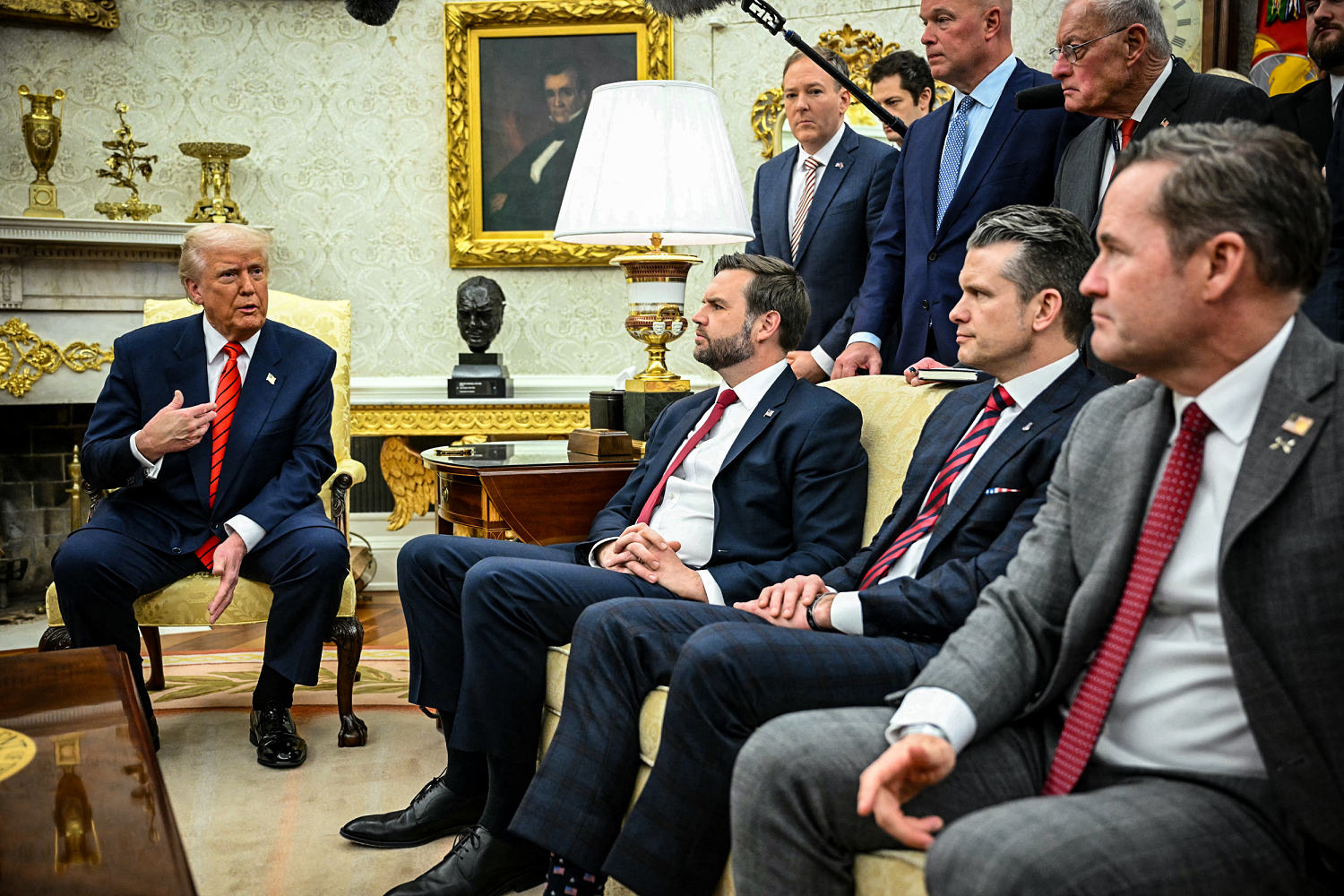
When Donald Trump and his team disclosed Social Security numbers while releasing documents related to the John F. Kennedy assassination, it was a reminder that this White House has a competence problem. When the president and his team sent non-criminals to a prison in El Salvador while falsely claiming that they were gang members, it was a reminder that this White House has a competence problem.
When Team Trump’s DOGE operation repeatedly stepped on its own tail, including an instance in which it confused $8 billion and $8 million, it was a reminder that this White House has a competence problem. When the White House royally screwed up its Office of Management and Budget spending “freeze” memo, it was a reminder that this White House has a competence problem.
But to fully appreciate the truly galactic nature of Team Trump’s competence problem, one must read — and then re-read — the latest report from Jeffrey Goldberg, The Atlantic’s editor-in-chief.
The world found out shortly before 2 p.m. eastern time on March 15 that the United States was bombing Houthi targets across Yemen. I, however, knew two hours before the first bombs exploded that the attack might be coming. The reason I knew this is that Pete Hegseth, the secretary of defense, had texted me the war plan at 11:44 a.m. The plan included precise information about weapons packages, targets, and timing.
In a story so ridiculous that it almost defies description, much of the Trump administration’s national security team — Vice President JD Vance, Hegseth, Secretary of State Marco Rubio, Director of National Intelligence Tulsi Gabbard, CIA Director John Ratcliffe and White House national security adviser Michael Waltz — organized a meeting to discuss plans for a military strike.
That might not sound especially notable, but these powerful officials didn’t meet to discuss an active military operation in a sensitive compartmented information facility, or SCIF, where phones are not permitted. Rather, they help their chat by way of a Signal thread — and they inadvertently invited a journalist to participate.
No, seriously, that’s what happened.
The Atlantic’s editor-in-chief acknowledged that as this was happening, he was skeptical that the chat was authentic, which was understandable given the circumstances. But it was quite real, as confirmed by a spokesperson for the National Security Council. (When Goldberg came to realize that he was actually participating in in a chat involving high-ranking officials discussing a military operation, he exited.)
Trying to summarize the reporting is difficult — please believe me when I tell you that it’s important to read the whole thing — and it’s challenging to know where to start. Indeed, the list of questions is not short. Did these officials break the law? Was this the first time they used a private chat for this purpose, or is this a routine practice in the Trump White House? How many of these people will be asked to resign in the wake of this humiliating debacle? How many will be fired?
Do these guys always write as if they’re over-caffeinated middle schoolers playing video games? (Kevin Kruse, a historian at Princeton University, wrote in response to the reporting, “In private, these people seem immensely stupid.”) Do they remember what they said about Hillary Clinton, who was accused of using a private platform to discuss sensitive national security matter?
But as the political world comes to terms with the scope and scale of this genuine scandal, I’m stuck on the fact that the White House’s breathtaking incompetence appears to be undermining the national security of the United States in terrifying ways. Americans’ safety is in the hands of unqualified and inexperienced amateurs, who clumsily invited a journalist to join a chat about a military strike in a foreign country.
For his part, a reporter asked Donald Trump for his reaction to the revelations, just hours after The Atlantic published its report online. “I don’t know anything about it,” the president said. After taking a few rhetorical shots at the magazine, he again added: “I know nothing about it.”
That doesn’t make matters any better, given that he really ought to know something about it.



